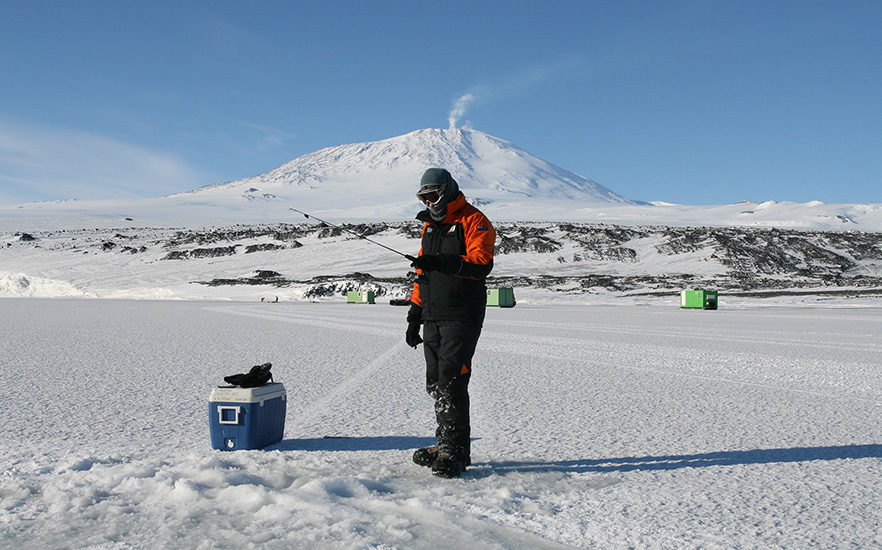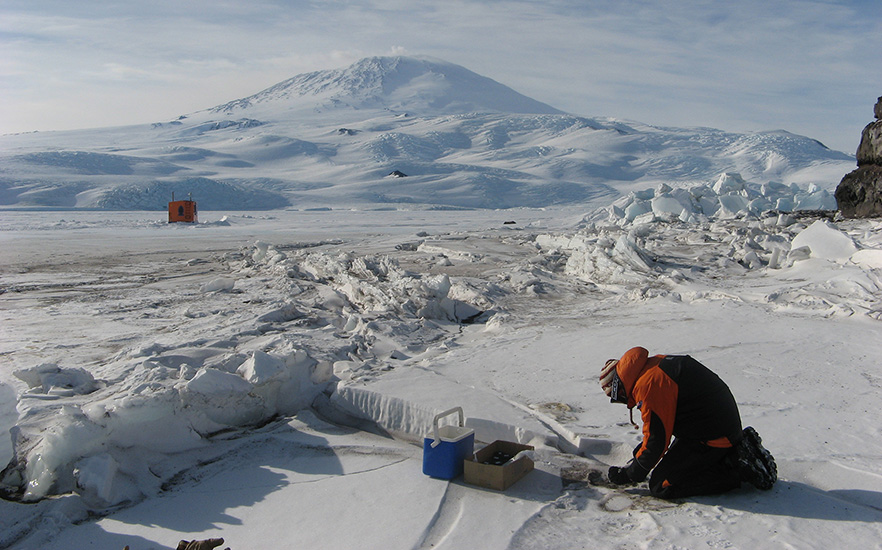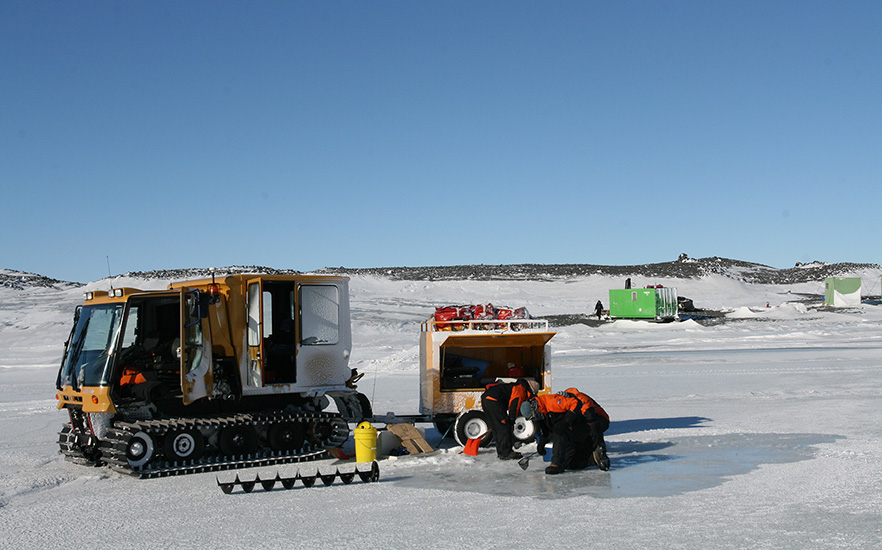Fundamentals of climate change
Antarctica is the engine room of the World's climate, and harbours life that has adapted to extreme changes in the environment. Researchers at Otago University are working to understand how the Antarctic climate functions, the special adaptations of Antarctic species to their cold environment, and how the Antarctic ecosystem functions in terms energy flow and trophic complexity. Much of our research helps us to understand how the Antarctic will response to climate change processes.
Otago researchers collaborate at the national and international level with organisation including GNS, NIWA, ANDRILL, British Antarctic Survey, Alfred Wegner Polar Institute, AIMS, Scripps, GEOMAR as well as a number of New Zealand and overseas universities. Otago University also has facilities for returning Antarctic animals to New Zealand for off-ice research.

Researchers
- Professor Miles Lamare
- Professor Gary Wilson (Honorary)
- Dr Christina Riesselman
- Professor Stephen Wing
- Professor Crid Fraser
- Professor Cliff Law
Publications for the above researchers can be found at the bottom of their academic profile page.
Research projects
- Currently, staff in Marine Science are undertaking research as part of the Antarctic Science Platform. This large national research programme is working to determine the impacts of warming on the biology, physical environment and atmosphere in the Ross Sea region under 2°C further warming. This includes examining past climate changes in the region using state-of-the-art paleontological techniques.
Specific research in the Ross Sea includes:- Determining changes in Biogeochemical cycles
- Isotope and trace element analyses to examine changes in ecosystem and trophic processes
- Experimental warming of the seafloor to determine impacts on benthic species
- ROV surveys and eDNA estimates of Coastal Biodiversity in the Ross Sea
- Genetics to determine connectivity Population connectivity and larval transport processes
- Using molecular and oceanographic modelling techniques, we are examining the movement of non-indigenous species into Antarctica through ocean currents and kelp rafting is being examined. Such research is critical in understanding how species may colonise the region under future warming conditions
- Adaptive potential in Antarctic species to ocean acidification and warming is being determined using Antarctic sea stars. These experiments are being undertaken at the Portobello Marine Lab, in quarantine facilities, where up to 600 Antarctic sea stars are flown to New Zealand and reared over multiple years to determine acclimation and adaptation.

Opportunities
We have the resources , scholarships , staff and opportunities you need to reach your goals. Please refer to each staff members profile for research and study options.

